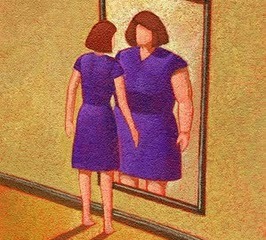How Does Anorexia Affect The Body?
 Approximately 24 million people suffer from an eating disorder such as anorexia, bulimia or binge eating disorder, according to the National Association of Anorexia and Nervosa and Associated Disorders (ANAD).
Approximately 24 million people suffer from an eating disorder such as anorexia, bulimia or binge eating disorder, according to the National Association of Anorexia and Nervosa and Associated Disorders (ANAD).
In anorexia, people have a distorted perception of their overall body image: anorexics believe that they are extremely overweight when, in fact, they are severely underweight. The malnutrition that results from anorexia can affect the body through the development of many long-term complications including death.
How Anorexia Harms the Body
Complications of anorexia stem from the overall lack of nutrition and calories the body receives. These complications can affect one or more of the following parts of the body:
- Bones: Throughout the body bones become weak and thin, with the probability of osteoporosis developing.
- Hair and nails: Both hair and nails become thin and brittle, breaking easily.
- Skin: Extreme dryness and a yellowish tint can develop.
- Muscles: All over the body, muscles can become weak, eventually developing into muscle-wasting conditions.
- Body hair: Fine hair, called lanugo, can grow all over the body.
- Blood pressure: Extremely low blood pressure can develop.
- Tiredness: Feeling tired, or lethargy, all the time.
- Multiple organ failure and damage: Heart complications can occur due to damage to the structure of the heart. Brain damage also can happen due to lack of nutrients.
- Amenorrhea: Loss of monthly menstruation.
- Infertility: Inability to conceive a baby due to lack of menstruation.
Source: National Institute of Mental Health & National Association of Anorexia and Nervosa and Associated Disorders
 Eating Disorder Self Test. Take the EAT-26 self test to see if you might have eating disorder symptoms that might require professional evaluation. All answers are confidential.
Eating Disorder Self Test. Take the EAT-26 self test to see if you might have eating disorder symptoms that might require professional evaluation. All answers are confidential.